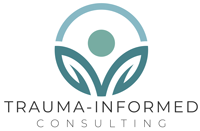The Balancing Act
Working in the human services can have a negative impact on one’s physical and emotional reserves. In trauma-informed care, we encourage our service providers to be empathic and approach others with a whole-person lens. This sounds good; in reality, the work looks more like a balancing act.
I find that my social worker history is a benefit to my current work. I have served a wide variety of people, attending numerous trainings while utilizing and improving my skills over time. The growth continues as I seek new knowledge and approaches. However, when we look at the stats on social workers and their performance, the results show another story. Time takes a toll. When I consider my own experiences and the stress that I have faced, I understand why.
My area of service, social work, can be a difficult field. It often involves providing services with little resources and limited time. Social service agencies can make high demands and expect their staff to reach specific outcomes that are linked to funding. Social work values that involve advocacy and a focus on the dignity and wellbeing of the client get compromised with the constraints. We can feel exhausted trying to balance the internal and external demands of the job. And while we try and keep it all up, we don’t always get the support we need. In fact, the field of social work in general isn’t highly regarded. The medical model marginally recognizes the importance of social work. The pay and benefits don’t often reflect that of partner careers, or professional careers in general. The old saying, “You don’t do it for the money, but for the reward” sounds to me like a great way to justify this lack of societal support for the difficult and critical work in this field. I don’t buy it.
Given these hurdles, I believe that there are ways to do this rewarding work while avoiding burn-out.
Be aware and intentional
Awareness is at the heart of wellbeing. Knowing what the demands of the job are and understanding how it may impact the ideals of social work ethics is a place to start. We may be given a job that doesn’t allow us to reach the ideals, but we can do our best to include these in our delivery of service. We can just do what we can do. If we are asked to do what seems to be unrealistic or given so much work that we are unable to take care of ourselves and our relationships, then it might be time for a new job search.
Own your own work, and not the progress of others
In human services, the goal is to offer guidance and resources that benefit others. We continually grow in our skills and knowledge in order to meet the needs of our clients in the best way possible. However, it is tempting to measure ourselves by the progress of our clients, sometimes pushing our help on those that don’t seem to respond. We do so all in the name of wanting what is best. But we need to remember that each client is the driver of their own life. Their personal change and growth belong to them. Our place is to respect their choice without making the assumption that it is a reflection of our work. This approach is a good way to keep from burning out and helps provide healthy boundaries between ourselves and our clients.
Examine your expectations
In trauma-informed care, we understand that the client is the expert on their own life. They make the choices that guide their lives, not us. Let’s keep in mind that our expectations should not include them buying into what we want them to do, and instead provide collaborative guidance with the ability to allow them to disengage with us, to provide other resources outside of what we can offer and remind ourselves to not be the judge.
Embrace your own wellbeing
It seems absurd, but it you want to find folks that often neglect their health and emotional well-being, hang out with those in the field of social work. Many of us come from past trauma and have not been given the guidance ourselves regarding how to recognize the symptoms and how to grow towards social and emotional wellbeing. It isn’t a part of the curriculum. We then want to help others, so we step into a field that can feel abusive and be overly demanding. That is a set up for disaster, and that is generally what happens.
If we are to provide guidance to others, we need to balance the health of our clients with the health of ourselves. Let’s follow the path that we provide for those we serve.
